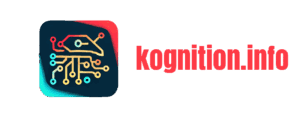Proactively manage procurement risks with AI-driven insights. Sourcing risk management with AI involves predicting and mitigating risks associated with sourcing from different suppliers. AI tools analyze a range of factors such as supplier financial health, compliance history, market stability, and geopolitical risks. By leveraging predictive analytics, procurement teams can identify potential disruptions before they occur […]
Functional Use Case: Procurement AI Use Cases
Sourcing Risk Management
Global Sourcing Strategy Optimization
Optimize sourcing strategies across regions with machine learning. Global sourcing strategy optimization uses machine learning to evaluate and enhance sourcing strategies across different regions. By analyzing variables such as cost, supplier reliability, trade regulations, and geopolitical risks, machine learning models help procurement teams identify the best sourcing locations and strategies. This data-driven approach enables organizations […]
Procurement
Supplier Identification and Analysis Discover and evaluate suppliers with AI-driven precision. Supplier identification and analysis using AI involves leveraging data-driven tools to scan global databases, market reports, and industry-specific information to identify potential suppliers. AI systems can assess these suppliers based on predefined criteria such as reliability, cost, compliance, and delivery performance. By automating the […]
Smart Contract Implementation
Automate and secure agreements with AI-facilitated smart contracts. Smart contract implementation leverages AI to facilitate and execute blockchain-based smart contracts. Smart contracts are self-executing agreements with the terms directly written into code, stored, and replicated on a blockchain. AI can enhance these contracts by automating the drafting, execution, and compliance monitoring processes. This use case […]
Contract Negotiation in Procurement
Contract Outcome Prediction Anticipate contract results with AI-powered forecasting. Contract outcome prediction leverages machine learning to forecast the results of contract terms and negotiations. By analyzing historical contract data, market conditions, and supplier behavior, AI models can provide insights into potential outcomes of contract terms. This helps procurement teams assess the likelihood of contract success, […]
Real-Time Clause Adjustment
Adapt contract clauses on the fly with AI-powered negotiation support. Real-time clause adjustment uses AI tools to propose changes to contract clauses during active negotiations. These systems analyze ongoing discussions and suggest adjustments to align with company standards, mitigate risks, and enhance contract terms. The AI tool acts as an intelligent assistant, providing immediate insights […]
Negotiation Strategy Analysis
Optimize your negotiation outcomes with AI-driven strategy insights. Negotiation strategy analysis using AI involves leveraging machine learning models to suggest effective negotiation tactics based on historical data and case outcomes. These tools analyze past contract negotiations, identify successful strategies, and provide data-driven insights to enhance current and future procurement negotiations. By understanding patterns and tactics […]
Contract Negotiation in Procurement
AI-Powered Contract Drafting Accelerate contract creation with NLP-powered drafting tools. AI-powered contract drafting involves using Natural Language Processing (NLP) tools to generate initial drafts of procurement contracts. These tools automate the drafting process by using templates, legal databases, and customizable clause libraries to produce comprehensive and compliant contracts. This significantly reduces the time needed for […]
Real-Time Market Price Monitoring
Optimize purchasing decisions with AI-powered market insights. Real-time market price monitoring uses AI to track market prices for goods and services, providing procurement teams with insights on when to buy to achieve the best value. These AI systems can analyze various data sources such as market trends, supplier pricing, and economic indicators to predict price […]
Spend Analysis Optimization
Unlock cost-saving opportunities with AI-driven spend insights. Spend analysis optimization using machine learning involves analyzing procurement and spending data to identify trends, inefficiencies, and cost-saving opportunities. This use case uses AI to process large data sets, categorize spending, and highlight areas where the company can consolidate purchases, negotiate better terms, or reduce wasteful expenditure. AI […]
Purchasing in Procurement
AI-Driven Purchase Order Automation Simplify and streamline purchase order management with AI. AI-driven purchase order automation leverages artificial intelligence to create, manage, and track purchase orders with minimal manual intervention. This use case enhances the efficiency of purchasing processes by automating the generation of purchase orders based on predefined rules and real-time data inputs. AI […]
Sustainability Assessment of Vendors
Ensure ethical sourcing with AI-driven sustainability assessments. Sustainability assessment of vendors involves using AI models to evaluate the environmental and social impact of vendor practices. These models analyze various data sources such as supplier disclosures, sustainability reports, social compliance audits, and public data on environmental practices. By integrating sustainability assessment into procurement processes, companies can […]
Vendor Management in Procurement
Supplier Relationship Management Build stronger supplier partnerships with predictive AI insights. Supplier Relationship Management (SRM) enhanced by AI involves using data analytics and machine learning to predict and manage relationships with key suppliers. This approach helps procurement teams anticipate potential supplier issues, optimize communication, and strengthen strategic partnerships. AI can analyze data trends related to […]
Automated Vendor Onboarding
Speed up vendor onboarding with AI-driven automation. Automated vendor onboarding uses AI to streamline the process of integrating new vendors into the procurement system. This includes automating tasks such as document verification, background checks, compliance assessment, and data entry. By leveraging AI, procurement teams can reduce the time and effort needed for onboarding while ensuring […]
Vendor Risk Assessment
Proactively manage supplier risk with AI-powered evaluations. Vendor risk assessment with machine learning involves using AI models to evaluate and predict the reliability and risk associated with suppliers. These models analyze various data sources, such as financial health reports, delivery histories, compliance records, and geopolitical factors, to create comprehensive risk profiles. This predictive capability helps […]
Vendor Performance Analysis
Optimize vendor partnerships with AI-driven performance insights. Vendor performance analysis using AI involves leveraging data analytics and machine learning to evaluate and track vendor performance over time. This use case integrates AI with procurement systems to process large volumes of data such as delivery timelines, quality metrics, contract compliance, and cost efficiency. By automating performance […]
